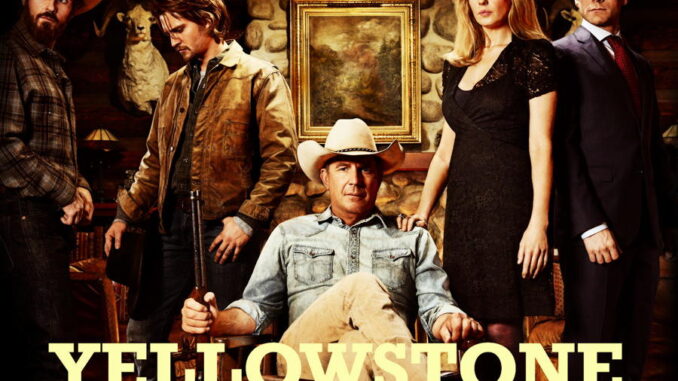
The High Noon of Yellowstone: The Conflict Between Kevin Costner and Taylor Sheridan
The sprawling landscapes, operatic family drama, and relentless power struggles of “Yellowstone” have captivated audiences, solidifying its place as a modern Western classic. But behind the breathtaking vistas and gripping narratives, a different kind of drama has been unfolding: a conflict simmering between the show’s star, Kevin Costner, and its creative mastermind, Taylor Sheridan. This dispute, rooted in ambition, creative control, and the allure of other projects, serves as a potent reminder that even the most successful collaborations can crumble under the weight of egos and diverging visions.
At the heart of “Yellowstone” lies John Dutton, the stern and uncompromising patriarch brought to life by Kevin Costner. Costner, a Hollywood icon with a deep affinity for Westerns, infused the character with a stoic gravitas that became synonymous with the series. He wasn’t just acting; he embodied the rugged spirit of the Montana rancher, projecting an aura of authority that resonated with viewers. Conversely, Taylor Sheridan, the architect of “Yellowstone’s” world, is a writer and director with a fiercely independent streak and a penchant for gritty, authentic storytelling. His vision, encompassing not only the Dutton family saga but also a burgeoning universe of prequels and spin-offs, has transformed Paramount Network into a powerhouse of Western-themed entertainment.
The initial partnership seemed idyllic. Costner, with his star power, brought immediate legitimacy and a built-in audience to Sheridan’s ambitious project. Sheridan, in turn, provided Costner with a meaty, complex role that revitalized his career. “Yellowstone” became a symbiotic relationship, each benefiting from the other’s strengths. However, the cracks began to appear as the show’s success fueled both men’s individual ambitions.
The central issue revolves around scheduling conflicts. Costner, increasingly drawn to his own passion project, a multi-part Western film series titled “Horizon: An American Saga,” reportedly sought to reduce his filming commitment to “Yellowstone.” This desire clashed directly with Sheridan’s meticulously planned production schedule and his vision for the future of the series. The show’s complex storylines and interwoven character arcs demanded consistency and dedication, qualities that became increasingly difficult to guarantee given Costner’s competing commitments.
Beyond scheduling, creative differences reportedly played a role. As “Yellowstone’s” universe expanded, Sheridan focused on developing prequels like “1883” and “1923,” further solidifying his position as the definitive voice of the Dutton legacy. While Costner remained the face of the main series, the narrative spotlight gradually shifted towards new characters and storylines, potentially diminishing his role and influence. This shift, coupled with reported disagreements about the direction of John Dutton’s character, fueled further tension between the actor and the creator.
The conflict reached a fever pitch, ultimately leading to the premature end of “Yellowstone’s” main series after the fifth season. Reports of heated arguments, protracted negotiations, and strained relationships painted a picture of a creative partnership irrevocably fractured. The studio was left scrambling to navigate the fallout, tasked with crafting a satisfying conclusion to the saga while managing the departure of its biggest star.
The ramifications of this conflict are far-reaching. For “Yellowstone” fans, the abrupt ending represents a disappointment, a feeling of unfinished business. For Costner, the departure from the series marks a significant shift in his career, allowing him to fully dedicate himself to his own cinematic vision. And for Sheridan, the experience serves as a cautionary tale, a reminder of the delicate balance between creative control, star power, and the inevitable complexities of collaborative storytelling.
The clash between Kevin Costner and Taylor Sheridan is more than just a Hollywood feud. It’s a microcosm of the challenges inherent in collaborative art, a story about ambition, ego, and the difficult choices that artists must make when faced with conflicting priorities. Like the unforgiving landscape of “Yellowstone” itself, the entertainment industry demands resilience and adaptability. Ultimately, the conflict serves as a reminder that even the most successful partnerships can be undone by the forces of creative tension and the ever-present allure of the horizon. The “Yellowstone” saga may be drawing to a close, but the echoes of this behind-the-scenes drama will undoubtedly resonate for years to come.
